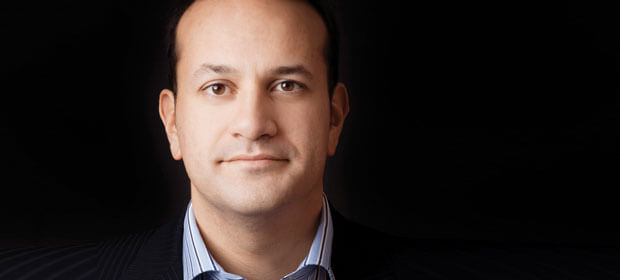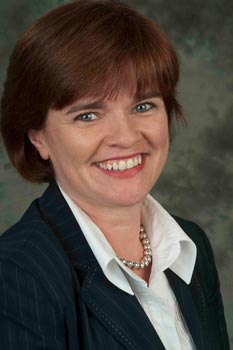- Minister Varadkar seeks realistic budget for 2015
- Minister’s new responsibilities
- Moving to Healthy Ireland
- Healthy Ireland Chair
- New COO for Tallaght
- New code of conduct for health managers
- Excellence award for Crumlin
- Connolly Hospital MRI & AMU
- CUH is global, green and healthy
- RCSI Hospitals
- Managers’ feedback sought on guidelines
- National standard for clinical terminology
- Letterkenny Medical Academy
- HIQA seeks managers views on new standards
- Ireland’s PCTs and PCCs
- Schull Primary Care Centre
- University Hospital Limerick expansion
- Individual health identifiers
- Patients referred electronically
- Updated eprescribing standards
Minister Varadkar seeks realistic budget for 2015
The new Health Minister, Dr. Leo Varadkar says he is trying to get a realistic health budget for 2015, as last year’s cuts had been proven to be unrealistic.

“We will put together savings in health and hopefully recycle them into dealing with the demographic demand” he said in an RTE interview.
The Minister said that treatment of chronic care in Ireland was unusual in that people attended hospital OPDs for conditions that in most European countries were done in primary care. Transferring them to primary care would take the pressure off hospitals “but it is a mistake to think you could flip a switch and see this happening.”
Minister Varadkar said it cost €200 million for the health services to stand still in a year. “We are certainly going to overrun this year by €450 – €500 million which is a very big overrun. You could bring it down, but the consequences for patients would be very significant.”
He told RTE that he believes he is fortunate that both the Minister for Finance, Michael Noonan and the Minister for Public Expenditure & Reform, Brendan Howlin are both former Ministers for Health and understood the portfolio and the pressures involved.
“I think there is a chance for a different approach. Savings just were not achieved in recent years so nobody won – the fiscal hawks did not get savings and we had a service focused on delivering savings rather than services. I think there is a broad understanding across government that there really isn’t much scope for further cuts in health spending. Between 2012 and now, the health service had done more with less. There is more activity in the last couple of years even though there is fewer staff and flat budgets. I think staff have confounded academics and others in this regard but I don’t think there is any more scope.”
The Minister said on RTE that he was in a job which most people acknowledged was one of the toughest in government. “I am here because the Taoiseach has confidence in me and hoped I will do a good job and in that way can aid the government re election.
“I think that what strikes me the most is that there are a lot of good things happening in health. Ninety nine per cent of the time things go right. We have a very good GP system and when you can get into hospitals the standard of care is very good.
“There are lots of things wrong. We have a health system largely about treating disease in hospitals but we should be moving towards a system which is about keeping people well and treating them in the community.”
The Minister thinks UHI is still the vision but says that we need to get it right and this takes time and the first step will be universal GP care which he sees as the biggest change in social provision in Ireland since the late Donogh O’Malley brought in free education.
He said he had met the main health insurers and was trying to work with them on ways to get people particularly younger people back into the health insurance market.
Before his appointment to the Health portfolio, Leo Varadkar served as Minister for Transport, Tourism & Sport from March 2011. He was first elected to Dáil in 2007 as TD for Dublin West. He is the youngest member of the Government.
Born in 1979 and raised in the Blanchardstown/Castleknock area of west Dublin, he attended St Francis Xavier National School and The King’s Hospital, before studying medicine at Trinity College, and qualifying as a General Practitioner. He likes watching rugby and Gaelic football, is a Dublin and Leinster fan and a fitness enthusiast who regularly takes part in running and triathlon events. He likes to travel, attend concerts and go to the cinema.
Minister’s new responsibilities

Ms. Kathleen Lynch, T.D., has set out the areas for which she will take responsibility under her expanded portfolio at the Department of Health.
As Minister of State for Primary and Social Care, she assumes responsibility for Primary Care and retains responsibility under the Social Care element of her portfolio for Mental Health, Disability and Older People.
Moving to Healthy Ireland

Dr. Ambrose McLoughlin, the Secretary General of the Department of Health, is moving to a new role supporting the implementation of the Healthy Ireland initiative ahead of his retirement next year.
The move was agreed by the Minister and the Secretary General in the context of his decision to retire in June 2015, after 40 years of service.
Minister Varadkar paid tribute to Dr. McLoughlin for piloting the Department through one of the most challenging periods for the health sector. “I look forward to continuing to work closely with Ambrose in his new role and expect to rely on his counsel and advice into the future. His extensive experience in the health arena will provide invaluable insight and guidance in progressing the achievement of the goals set out in the Healthy Ireland framework”’ said the Minister.
Dr. McLoughlin said: ‘It has been a privilege to serve as Secretary General in the Department of Health and I am very proud to take up this new role’.
Healthy Ireland Chair
Mr. Keith Wood has been appointed Chairperson of the Healthy Ireland Council. Mr. Wood is a former Irish International rugby player and founding Director of W2 Consulting.
Healthy Ireland involves a whole-of-government and whole-of-society response to improving the health and wellbeing of Irish people over the coming generation. The Council will provide the platform to connect and mobilise communities, families and individuals into a national movement with one aim: Supporting everyone to enjoy the best possible health and wellbeing.
New COO for Tallaght

HMI Hon. Sec and Council Member, Lucy Nugent has been appointed Chief Operations Officer at Tallaght Hospital.
She was previously Head of Quality Assurance & Risk Management with the HSE National Directorate of Acute Hospitals and before that worked as Clinical Services Manager with the Children’s University Hospital in Temple Street in Dublin
Lucy has worked in the acute hospital sector for over 20 years and is a Registered Children’s Nurse and Registered General Nurse. She holds a Bachelor of Nursing Studies (Hons) from Dublin City University and an M.Sc. (Hons) in Healthcare Management from Trinity College, Dublin. She sits on the European Association of Hospital Managers’ Scientific Committee and on the International Hospital Federation’s Chapter on “International Core Leadership and Managerial Competencies.”
New code of conduct for health managers
A new code of conduct which is being developed by the Department of Health for health service managers and employees is due to be published before the end of the year. It will replace the existing HSE Code of Standards and Behaviours published in June 2009.
The new code was recommended by HIQA in its report into the safety, quality and standards of services following the depth of the late Savita Halappanavar.
The Department says the code will set out the duties and responsibilities of all employees and set out the additional duties and responsibilities for those in management positions.
HIQA, which is due to monitor the code’s implementation says the code should set out managers and employees’ responsibilities to achieving an optimal safety culture, governance and performance of the organisation.
The Department of Health has established a Steering Group to oversee the development of the Code. Its membership includes representatives from the Health Management Institute of Ireland, the Department of Health, the HSE, HIQA, the Independent Hospitals Association of Ireland and the Mental Health Commission.
Excellence award for Crumlin
Our Lady’s Children’s Hospital Crumlin (OLCHC) has recently been designated for the third time as a Centre of Excellence in Extra Corporeal Life Support (ECLS) making them only the third unit in Europe to hold this award.
Extra Corporeal Life Support (ECLS) is an advanced life support system that uses an artificial lung (oxygenator) and pump (centrifugal pump) to facilitate the support of neonates, paediatrics and adults with severe respiratory or cardio-respiratory failure who have failed maximal conventional therapies.
The Extra Corporeal Life Support Organisation (ELSO) Excellence in Life Support Award recognizes ECLS programs worldwide that distinguish themselves by having processes, procedures and systems in place that promote excellence and exceptional care in extracorporeal membrane oxygenation.
ELSO’s goal is to recognize and honour ECLS programs that reach the highest level of performance, innovation, satisfaction and quality. Like other ECLS programs OLCHC has a specific training program for all team members involved in the care of ECLS patients, however specific note was made by ELSO for the bi-annual training program in OLCHC targeting NCHDs who frequently change every six months.
The ELSO Award signifies to patients and families a commitment to exceptional patient care. It also demonstrates to the health care community an assurance of high quality standards, specialized equipment and supplies, defined patient protocols and advanced education of all staff members. OLCHC first obtained the award September 2010, subsequently in September 2012 as identified above and now again in July 2014 for the cost effective approach to service delivery.
To date, 118 patients have been supported by the programme. 80 post-cardiac surgery, 16 were put on ECLS during active cardiopulmonary resuscitation (ECPR) 9 cardiology patients (5 of whom had myocarditis with 2 progressing to transplant) 9 patients had ECLS for respiratory support (5 of these have been sent abroad for further treatment as this service is not funded in Ireland for paediatric patients, while adults are funded in Ireland) and 4 patients had tracheal surgery supported with ECLS.
The ECLS program in OLCHC has again been recognized by the international Extra Corporeal Life Support Organisation for outstanding teamwork and results in a structured program.
Connolly Hospital MRI & AMU
Minister for Health Dr. Leo Varadkar has officially open the new Acute Medical Assessment Unit and MRI suite at Connolly Hospital in Blanchardstown, Dublin.
The AMAU replaces the temporary unit which has operated since 2012.
The AMAU is being implemented as part of the HSE’s National Acute Medicine Programme and provides urgent assessment and care for patients who present with medical conditions, getting them straight out of the emergency department and into a medical bed.
The unit is led by the Clinical Leads for Acute Medicine in Connolly Hospital: Dr. Eamon Dolan, Consultant Geriatrician, and Dr. Liam Cormican, Consultant Respiratory Physician.
The new eight bed Unit is open five days per week and treats patients referred by GPs and triaged directly from the Emergency Department. Patients referred to the AMAU are seen by a senior doctor within one hour of arrival and appropriate diagnostics undertaken with initiation of appropriate treatment.
The new MRI service provides inpatient and urgent outpatient scans. It enhances the diagnostic services available to patients, and means that patients can undergo scans in-house rather than being transferred to another facility. It will also enable the accreditation of Connolly Hospital by the College of Radiology as a training hospital.
The Radiology Department has a state of the art 64 slice CT scanner installed in 2009 and is developing an Interventional service.
Connolly Hospital serves a catchment population of 331,000 in Dublin West (including Finglas West and Lucan), North Kildare and South County Meath and is one of the fastest growing catchment population areas in the country.
Connolly Hospital is a Major Academic Teaching Hospital providing a range of acute medical and surgical services, acute psychiatric services, day care, out patient, diagnostic, support services and residential care. Emergency services are provided on a 365-day, 24 hour basis. Multi-disciplinary teams representative of medical, nursing, allied health professionals, management and general support staff play a pivotal role in the development, delivery, monitoring and evaluation of these services.
The hospital is affiliated to the Royal College of Surgeons in Ireland (RCSI) for medical education, to Dublin City University (DCU) for nursing education and to University College Dublin (UCD), Trinity College Dublin (TCD) and the Institute of Technology for allied health professional education. A Regional Centre for Nurse Education is located on site.
CUH is global, green and healthy
As part of its green initiatives, In 2013 Cork University Hospital (CUH) made savings of €96,318which would provide enough heating and power to 66 households a year based on their typical consumption, equivalent to 1,265,862 kwhror 493 tonnes green house gases reduction.

The campus improved its waste management practices and this resulted in an increase in the waste recycling rate to 34%; a reduction in food waste by three tonnes and a reduction of Health Care Risk Waste by nine tonnes.
As research increasingly links human and environmental health, Cork University Hospital (CUH) campus has become the first Irish member of the Global Green and Healthy Hospitals (GGHH). GGHH is a worldwide network of health care providers committed to making their operations more sustainable. As a network member, CUH campus is greening its operations in alignment with its mission as a centre for health and community resiliency. Together with GGHH’s members around the globe, CUH campus seeks to promote the well-being of patients, hospital staff and the entire community.
GGHH supports hospitals in their commitment to reduce their ecological footprint and improve public and environmental health. By joining the network, CUH campus endorses the ten point GGHH agenda, which provides a comprehensive framework for sustainability in the provision of healthcare.
According to CUH’s CEO Tony McNamara, “By creating a healthier environment for patients, staff and visitors, we are taking an important step in achieving the best outcomes for our patients and supporting community health. Specific changes in the ways we operate will lay the groundwork for better health – inside and outside our hospital walls. In recent years we have endeavored to transform the design, construction and operations of CUH campus facilities to minimize environmental impacts and foster healthy, healing environments. With the assistance of staff we have also improved energy efficiency and waste management practices. With the support of GGHH, we can quickly adopt proven practices and generate cost savings that allow us to devote more resources to do what we do best: provide high-quality, safe healthcare services.”
According to the International Coordinator of the Global Green and Healthy Hospitals Josh Karliner, “Cork University Hospital campus is providing visionary leadership to the community by adopting a commitment to green its energy and waste operations. We expect the CUH campus will see cost savings and create environment that is more conducive to public health through its participation with the GGHH network.”
CUH campus and other enrolled hospitals will track progress and share data to measure the impact of the changes they make. A current list of health systems participating in the worldwide GGHH network can be found at www.greenhospitals.net
Image: http://hospitalworld.info
RCSI Hospitals

The Dublin North East Hospital group is in future to be known as RCSI Hospitals, according to its Chair, Dr. Anne Maher.
The seven RCSI Hospitals are Beaumont, Connolly, The Rotunda, Cavan General, Monaghan, Louth County and Our Lady of Lourdes Hospital, Drogheda. Their primary academic partner is the Royal College of Surgeons in Ireland.
Dr. Maher said that in May 2013, a Steering Committee was established to progress the hospitals’ activities of working together as a new hospital group. Since then, monthly meetings have taken place with CEOs/Hospital Managers, Clinical Directors and Directors of Nursing from all hospitals within the group, together with the CEO, Dean of the Faculty of Medicine and Health Sciences and Director of Research from RCSI.
Initially each hospital group was asked to come up with a new name/new brand and to develop a strategic plan for their future service configuration.
The process for the appointment of an Executive Team, which will have overall responsibility for the management of this newly formed Group is underway.
Said Dr. Maher “We are currently at the early stages of brand design for the overall hospital group and we are cognisant of the value and imperative in retaining the existing established logos and branding at our individual hospitals and academic locations. The Steering Group will continue to work together to determine how to establish the group brand across all partners while retaining existing valuable local hospital names and logos. We are also working on a Group Website for the Hospital Group.
RCSI Hospitals serve the area described as Dublin North East which stretches from central Dublin to the border with Northern Ireland. This is seen as the greatest area for population growth in the country together with a highly educated workforce.
Managers’ feedback sought on guidelines
Health Managers have until next Friday August 29 to provide feedback on two draft national guidelines for health technology assessment, which have been published by HIQA.
Dr. Máirín Ryan, Director of HTA at HIQA, said: “There is a growing awareness of the relevance and value of HTA, so we need to ensure that best practice is adhered to. These draft national guidelines provide an overview of the principles and methods used in assessing health technologies. They are intended as a guide for all those who are involved in the conduct or use of HTA in Ireland, promoting the production of assessments that are timely, reliable, consistent and relevant to the needs of decision makers and key stakeholders in Ireland.
“The Draft Guidelines for the Retrieval and Interpretation of Economic Evaluations of Health Technologies outline best practice in the interpretation of economic evaluations in the context of the Irish healthcare system. Applying the guidelines has the potential to improve the efficiency of the technology assessment process by maximising the use of relevant published evidence and avoiding unnecessary duplication of effort.
“The updated Draft Guidelines for Evaluating the Clinical Effectiveness of Health Technologies in Ireland outline the appropriate methods for evaluating the clinical effectiveness of health technologies. The updated guidelines, originally published in 2011, are aimed at improving the accuracy of HTAs undertaken for the Irish healthcare system.
Dr. Ryan said: “These guidelines present clear and solid advice to both the people who produce HTAs, and to those who have to make the hard decisions about funding technologies. The Authority believes that these guidelines will contribute to better technology assessment and thereby make best possible use of healthcare resources.”
The draft guidelines and information on taking part in the consultation can be found at www.hiqa.ie.
National standard for clinical terminology
HIQA has made recommendations to the Minister for Health regarding the adoption of a national standard for clinical terminology in Ireland, which it says is an essential building block for rolling out eHealth and for the introduction of electronic health records.
The national standard that HIQA has recommended is SNOMED CT, an electronic dictionary of healthcare terms. It involves the clinical coding of information; translating medical terminology into a coded format which is nationally and internationally recognised.
Professor Jane Grimson, Acting Chief Executive and Director of Health Information at HIQA said: “We are recommending the introduction of SNOMED CT to improve the quality of clinical data in patient records and the overall quality of care received by patients. The introduction of the SNOMED CT system means that patients can potentially benefit by receiving improved quality and safety of care and healthcare providers can benefit through cost savings and improved efficiency.
HIQA has recommended that the Department for Health purchases a national licence for SNOMED CT, rather than making it a requirement for individual organisations such as hospitals, academia, or general practices to purchase individual affiliate licences at significant greater cost.
As SNOMED CT is a complex system to implement, due to both its size and structure, HIQA is proposing that it be adopted gradually on a project-by-project basis, with a national release centre to support stakeholders with implementation. HIQA suggests that focusing on a phased approach based on incorporating SNOMED CT into new systems rather than trying to retrofit it within existing systems would be a more practical and cost-effective approach.
Letterkenny Medical Academy
Letterkenny General Hospital is to get a medical academy in association with the National University of Ireland in Galway
It will be built by the HSE and will be used for medical education and training of healthcare students.
Building is expected to begin in October and the project should be completed in about 12 months.
HIQA seeks managers views on new standards
HIQA is seeking feedback on new national draft standards for nursing homes and residential care settings providing services to older people, writes Maureen Browne.

HIQA has begun a nationwide public consultation on new national standards for nursing homes and residential care settings providing services to older people. They are seeking feedback from residents and their families, interested groups, people working in nursing homes and from the general public.
Marie Kehoe-O’Sullivan, Director of Quality and Safety Improvement at HIQA, said: “The current standards are now five years old and nursing home care has moved on during this time. We have also learned a lot from five years of inspecting these centres and the new standards reflect where significant improvements have been made but also where further attention is needed.
“We know that staff and management in residential care want to provide the best care for their residents and these new standards will help them promote improvement in areas such as medication management, person-centred care, infection prevention and risk management. Service providers are also more aware now of their responsibilities in ensuring the safety and wellbeing of residents and, having experienced regulation of the sector, they are also clear on the consequences of not doing so,” she said.
“It must be noted however that only 1 of the 566 centres inspected by HIQA in 2013 resulted in enforcement procedures being taken. This is clear evidence of regulation working for the benefit of the people using these services.
“Older people have a right to live as full a life as possible in a high quality, safe and respectful environment. For the approximately 6% of older people in Ireland living in residential care, this is vitally important for them as these nursing homes are where they live.”
The Standards represent a revision by HIQA of the standards published in 2009. They take into account feedback from providers and residents living in residential care settings as well as evidence-based international research.
The standards are relevant to all people living in a residential care centre or a respite care centre for older persons. They focus on the individual and set out the rights of residents, including their entitlement to protection, high quality, safe and respectful care, as well as matters such as staffing and management of the residential care settings.
The standards apply to services provided in all nursing homes, and other care settings such as geriatric hospital wards, run by the HSE, private organisations or voluntary bodies.
Registered nursing homes are subject to monitoring and inspection on a regular basis to ensure they are meeting the standards and complying with the legislation and regulations.
Marie Kehoe-O’Sullivan said: “Following the launch of the draft standards, we would like to hear from nursing home residents, their families and the public. The information collected from the consultation process will be used to inform the development of the final set of standards. These will be submitted to the Board of the Authority and then to the Minister for Health for approval. Subject to approval, they will then become mandated as the new National Standards and will apply across all residential care settings for older people.”
The final date for receipt of submissions is September 24, 2014. To take part in the consultation go to www.hiqa.ie.
Ireland’s PCTs and PCCs
There were 467 primary care teams in place by the end of last year, of which 419 were functioning, according to the HSE.
The HSE had planned to have 485 fully operational teams in place by the end of 2013, but now hopes to achieve this by having a further 60 PCTs fully operational by the end of this year.
The HSE National Service Plan provides for the procurement of 21 primary care centres this year. A total of 27 new primary care centres are due to be provided between now and 2016 and an additional 10 – 14 public private partnership primary care centres are due to be completed by 2017.
The former nurses’ home in the Royal Hospital, Donnybrook is to be developed as a primary care centre. Planning permission has been granted for the development.
Schull Primary Care Centre
The Mizen Primary Care Centre in Schull, which covers the Mizen Peninsula spanning Goleen, Crookhaven, Schull, Ballydehob, Durrus and all surrounding rural areas has been officially opened.
The Mizen PCC consists of two GPs, Dr. Brian O Connell and Dr. Helen Finlay, two practice nurses and support staff. The GPs provide a range of medical services to the community, which includes a high percentage of elderly patients. Being a popular holiday destination, the GPs also provide a service to both national and international visitors to the area. Dr. Brian O’Connell, Mizen Medical Practice says, “Working closely as a team alongside our HSE colleagues, this new state of the art Primary Care Centre has become a busy central hub providing vital health services to the entire Mizen Peninsula in West Cork.”
The HSE services provided at Mizen Primary Care Centre include Public Health and Community Nursing, Home Support Office, Dietetics, Physiotherapy, Speech & Language Therapy, Occupational Therapy, Podiatry, Community Mental Health Team, Dietetics and the Community Dental Clinic.
Mr. Ger Reaney, Area Manager HSE Cork said, “The development of the Primary Care Centre has allowed for increased communication and joint working among health professionals, which has resulted in more cohesive and comprehensive care for local people. It has enabled the Primary Care Team and Health and Social Care colleagues to provide a range of services in one central location. The Primary Care Team also continues to work closely with the local Community Hospital in Schull.
Ms.Gabrielle O’Keeffe, HSE General Manager, Primary and Community Care in Cork South said, “The development of this Centre is very welcome. All who work in the Mizen Primary Care Centre are fully committed to providing integrated and high quality health services for the people of the Mizen Peninsula and surrounding areas as well as the residents of Long Island. The provision of good community services in this remote area is of paramount importance, considering the high dependency elderly population, the distance from Bantry General Hospital and the acute hospitals in Cork City.”
Mr. Alex White T.D., Minister of State at the Department of Health with responsibility for Primary Care said “I am pleased to be here today to open the Mizen Primary Care Centre which will provide a wide range of health and social services to the people of the Mizen Peninsula.
I am confident that the opening of this centre will be of great benefit to the people of this community, both young and old, well into the future resulting in better health outcomes for all. I want to congratulate everyone associated with its development”.
University Hospital Limerick expansion
Work is due to begin next January on a new Emergency Department and dialysis unit at University Hospital, Limerick. The ED, which is expected to cost €20 million, is due to be completed in 2016.
In a report on the hospital earlier this year, HIQA stated that the current ED was “not fit for purpose.” The single-most significant risk identified by the HIQA review was the number of serious delays and risks for patients and staff due to persistent overcrowding in the ED. UHL is the only hospital within the group providing emergency and critical care services.
In the interim period, whilst the new ED is being built, a number of measures have been put in place to alleviate the pressure on the current ED and to address the overcrowding. These measures include a 17 bed short stay unit, the Acute Medical Unit, the Acute Surgical Assessment Unit and a navigational hub to identify and address potential delays at an early stage.
A new state of the art €35 million Critical Care Unit has also been opened in the hospital. The hospitals says the opening of this unit is a major step forward in the development of acute hospital services across the region and follows on radical improvements in the provision of critical care. The unit has been future proofed by having the space to allow up to 12 ICU beds and currently the unit is seeking to increase the beds numbers from seven to ten.
Individual health identifiers
HIQA is in the process of setting standards for the governance and management of individual health identifiers, following the enactment of the Health Identifiers Act 2014.
An individual health identifier (IHI) is a unique, non-transferable number assigned to all individuals using health and social care services in Ireland, which will last for their lifetime. Its purpose is to accurately identify the individual, enabling health and social care to be delivered to the right patient, in the right place and at the right time.
Similarly, health identifiers for healthcare professionals and organisations are numbers that accurately identify the practitioners who provide health services (e.g. the hospital, GP etc.) and the locations where the health services are provided.
HIQA Acting Chief Executive Prof. Jane Grimson said that the enactment of the Health Identifiers Act 2014 was an important step forward for patient safety and for quality of care in Ireland.
The Health Identifiers Act 2014 provides the legal basis for individual health identifiers for health service users and health service providers. Individual health identifiers will be used across the health service, both public and private.
Prof. Grimson said that identifiers would help to ensure that the right information was associated with the right individual at the right time. They would help to reduce duplication and the risk of mis-identification at the point of care. The Act protected the privacy of individuals and complied with data protection legislation.
Patients referred electronically
All of the acute hospitals in Cork and Kerry have now introduced an electronic referral system for GPs referring patients for public outpatient hospital appointments as part of a HSE national pilot project.
The Mercy University Hospital was the first hospital to accept electronic referrals from GPs. Since then the other acute hospitals in the region – Mallow General Hospital, Cork University Hospital, the South Infirmary-Victoria University Hospital, Kerry General Hospital and Bantry General Hospital – have made the electronic system available in their areas.
Tallaght Hospital, which was also part of this pilot project, is also accepting electronic referrals to its paediatric services.
To date almost 7,000 electronic referrals have been received by the hospitals in Cork, Kerry and Tallaght with almost 300 Cork and Kerry based GPs using the system. This represents 46% of all Cork and Kerry based GPs and 40% Dublin based GPs.
Dr. Frank Hill is the GP representative on the project team charged with implementing the pilot project. According to Dr Hill, “I have been electronically referring for over 12 months and it has become my default option for all referrals to public outpatients because it is fast – takes me less than a minute to create and send most referrals so I usually do it while the patient is with me. I get an immediate acknowledgement from Healthlink, which allows me to tell the patient before they leave that the referral has been received already by the hospital. I get an electronic message confirming the appointment from the hospital, which saves automatically into the patient file. This saves hugely on telephone calls to the hospital to confirm receipt of referrals when patients phone back asking what is happening with their appointment. It saves me the time and money involved in printing and posting.”
The purpose of this electronic general referral project was to develop an electronic referral pathway for public outpatient hospital appointments between GPs and the seven hospitals. Healthlinkprovides a web-based messaging service, which allows the secure transmission of the electronic general referral from a GP to the hospital.
Once the referral has been received by Healthlink, the GP receives an acknowledgement of receipt of the referral and also an electronic response message detailing if the patient has been listed for an urgent or a routine appointment and the appointment date if available.
The HSE says the system improves the overall patient experience by providing quicker access to outpatient appointments, reducedduplication and delays and faster and easier access to a consultant opinionas electronic referrals are transmitted to the hospital safely and immediately.
There are also benefits for the GPs using the system. GPs have a centralised referral department to send all electronic appointments, they can use the same referral form to refer to all specialties and the form auto-populates the patient’s data from the GP’s computer system. The GPs also get an immediate acknowledgement of the referral and a prompt triage response, which makes it a safe, traceable system.
The system is designed in a way that can be rolled out nationally to all GPs and acute hospitals and since the pilot phase in the Cork, Kerry and Tallaght hospitals, a number of other hospitals are interested in starting the process.
The introduction of electronic referrals for outpatient hospital appointments, which is based on HIQA’s general referral form, has been informed by the National Cancer Control Programme, Healthlink, the National General Practice Information Technology Group, Irish College of General Practitioners and the HSE’s ICT Department.
Throughout the project there has been extensive engagement and communication with the numerous stakeholders including GPs, consultants, unions, referral administrative staff and patients to ensure that the GP electronic general referral system is accessible, transparent, measurable and sustainable.
Updated eprescribing standards
HIQA has published a new version of its General Practice Messaging Standard to include the messaging requirements for the electronic transfer of prescriptions between GPs, Consultants in Outpatient Departments and community pharmacies.
HIQA says “this new version of the Standard goes further to reduce medication errors, leading to safer, better care.”
The GP Messaging Standard specifies the structure and content of electronic messages. It aims to standardise the transmission of these electronic messages between general practices, secondary care and out-of-hours care.
HIQA’s Acting Chief Executive and Director of Health Information, Professor Jane Grimson, said: “This Standard addresses the need to standardise the information shared between GPs and other health professionals, such as hospital consultants, leading to reduced errors in information flow and better outcomes for patients.
“The Standard will mean that consistent, understandable and trustworthy information is exchanged, helping health practitioners to make decisions for their patients that are based on the best available evidence.”
The GP Messaging Standard outlines the way patient information, ranging from blood test results, diagnosis information, referrals and X-rays, can be more accurately and safely transferred between healthcare services.

